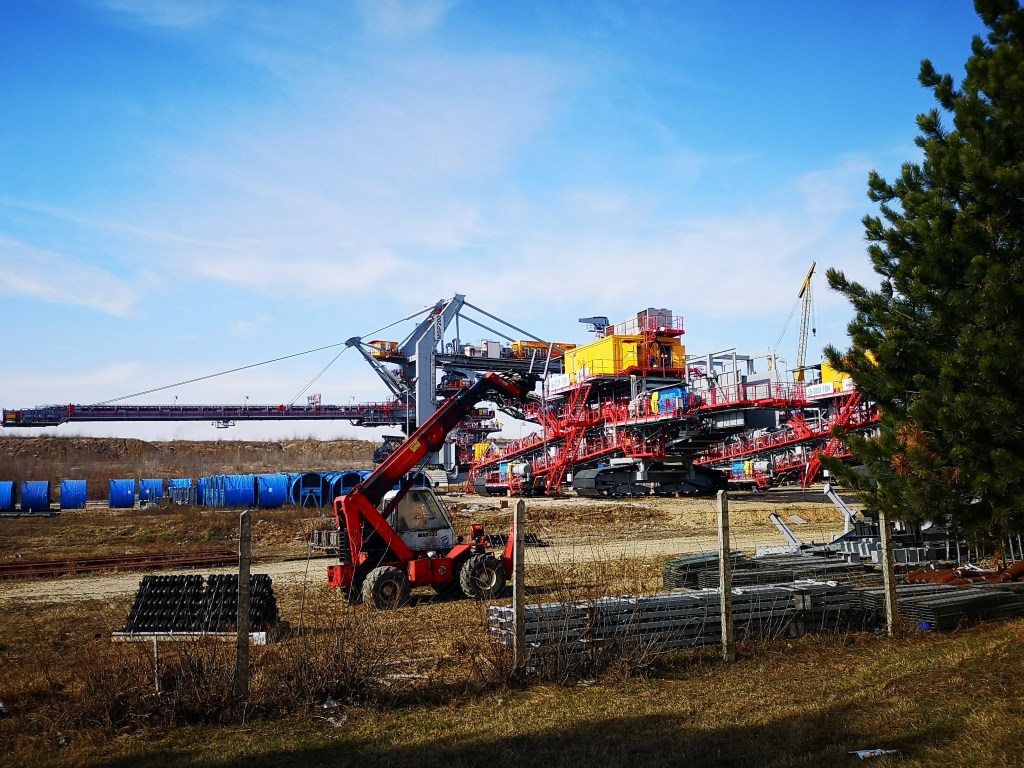
Photo: Just Finance International (2019)
In June, EU and China met to iron out their differences, chief among them, as the EU’s Vice-President Josef Borrell put it, the “systemic rivalry” between EU and China. China’s ambassador to the EU, on the other hand, minced his words and assured that there would be no “fundamental difference” between the two. Nevertheless, of all the important geopolitical challenges that require cooperation beyond the summit, Belt and Road climate impacts caused by Chinese bankrolled coal projects in Europe risk slipping off the talking points in this heated moment.
Earlier in June, top EU-China diplomats reiterated the commitment to fighting climate change, and that the solution is only possible by joining hands with China. Still, details on how EU plans to engage with China on the climate impacts of the Belt and Road Initiative (BRI) remain scant. BRI matters because of the numbers and the scale.
Last year, the EU voiced concerns in the EU-China: A Strategic Outlook over China constructing coal-fired power stations in many countries,. In Europe, as much as 3.5 gigawatts of new coal-fired power stations may be built by Chinese State-Owned Enterprises (SOEs).
In fact, the construction of the new unit for Tuzla’s coal-fired power station in Bosnia and Herzegovina and phase two of a coal-fired power station in Kostolac B3 in Serbia are moving ahead in spite of ongoing investigations by the Århus Convention Compliance Committee. Both projects are still subject to ongoing legal challenges in-country.
Earlier this year, Chinese SOEs announced two new projects in Southeast Europe – in Serbia and in Montenegro – around the same time as China’s National Energy Administration (NEA) relaxed restrictions on coal power which led to approvals in China of approximately 10 gigawatts of new coal-fired capacities. The move by Chinese authorities to approve coal projects at home and overseas, bankrolled with Chinese government-backed loans, is at odds with the ‘greening of BRI’ pledges.
Seven years into implementation, China’s Belt and Road Initiative is recognized for its sloganeering on creating super connectivity corridors in the energy and transport sectors. For more than a decade, China’s overseas investments in infrastructure and resource extraction is estimated to be nearing the value of 2 trillion USD.
China’s stated policy is to increase development assistance and the export of its industries to places that are key to China’s geopolitical interests. China’s “no strings attached” lending practice is opposed to the conditionalities required by multilateral or western lenders and has propelled a rapid entry of Chinese SOEs into Southeast Europe with fossil fuel and high-carbon large-scale infrastructure projects.
Lured by Chinese loans, Southeast European countries are agreeing to coal and infrastructure deals that will derail decarbonizing of the energy system and delivery of the New Green Deal. The Western Balkan countries, at different stages of their EU accession ambitions, have made some progress in aligning with EU standards.
Yet, the region’s position in the EU’s enlargement “foyer” incentivizes Chinese state actors to leverage the looser regulatory environment in advancing coal deals which often undermine transparency and competitiveness requirements for tenders and the national law. Serbia, for one, made sure to introduce extrajudicial measures in removing the tender requirement for the Chinese financed Kostolac B3 coal deal.
Chinese companies that undertake coal-fired power stations and coal mine expansion projects in the Western Balkans usually rely on a package formula consisting of loans from Chinese banks in return for preferential treatment by recipient countries. Some of the projects have triggered a range of compliance violations with the national law, EU energy acquis (required under EU harmonization agreement), and international conventions through irregular financing agreements or procurement procedures.
The absence of EU’s punitive measures for breaches of EU standards could be inviting for Chinese companies to leverage loans for the benefit of Chinese EPC contractors in the already fragmented regulatory environments in the EU’s own backyard. China Gezhouba Group, the EPC contractor for Bosnia’s Tuzla 7 coal-fired power station project financed by The Export-Import Bank of China, is a company with several affiliated entities that are debarred by international financial institutions citing fraudulent practices.
In 2018, China’s Minister of Foreign Affairs Wang Yi responded to criticism of NGOs and the European Parliament on the irregularities of the “16+1 Cooperation” through an official statement on how “cooperation should be carried out in accordance with the EU laws and regulations” but has not since offered any concrete solutions for the Chinese-involved coal projects that are fraught with irregularities.
Solving climate change cannot happen without cooperation with China, says EU. Words should matter.
Wawa Wang (VedvarendeEnergi, Denmark),
Denis Zisko (Center for Ecology and Energy, Bosnia and Herzegovina),
Zvezdan Kalmar (Center for Ecology and Sustainable Development, Serbia),
Majda Ibrakovic (Center for Environment, Bosnia and Herzegovina)

